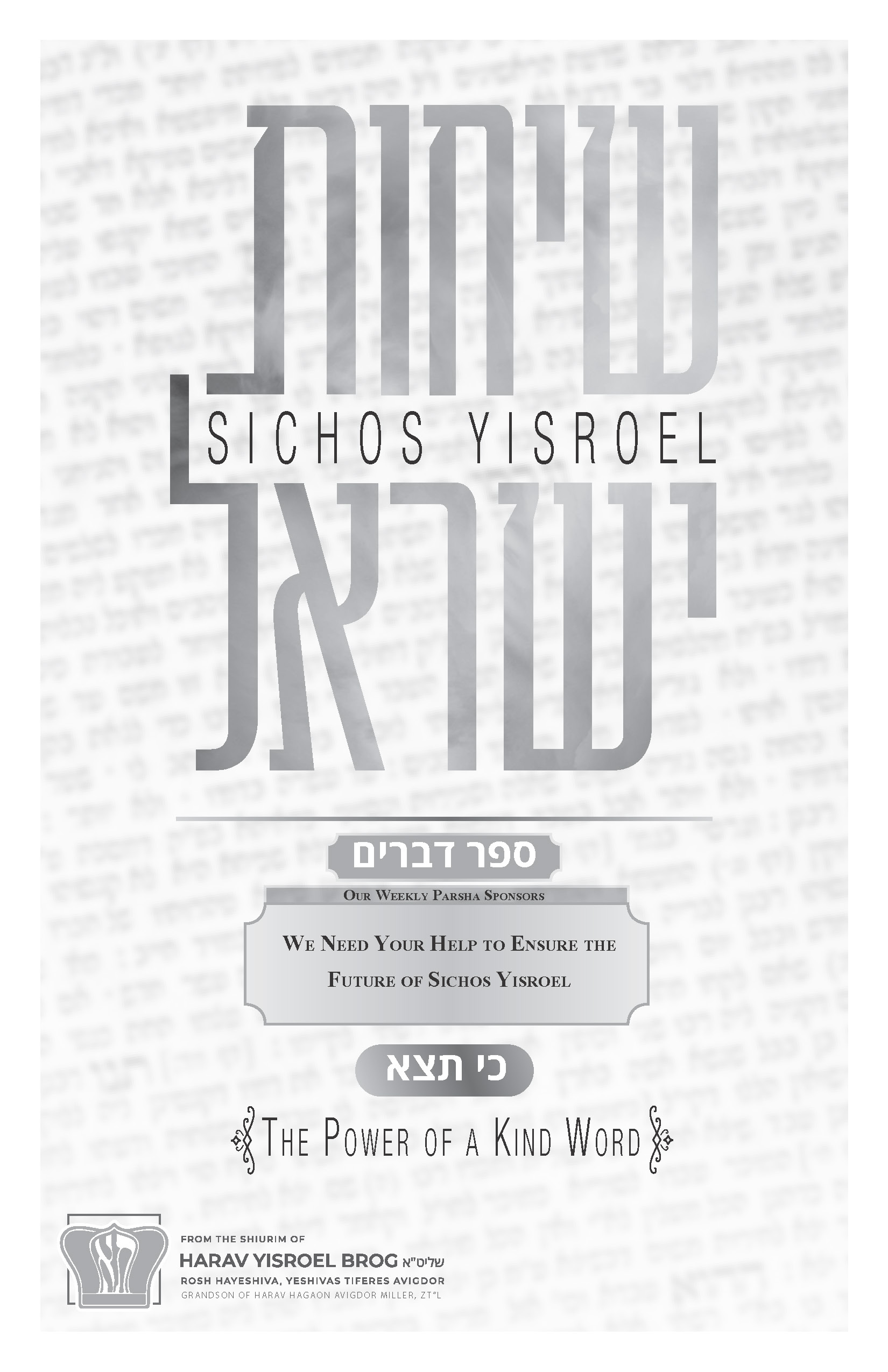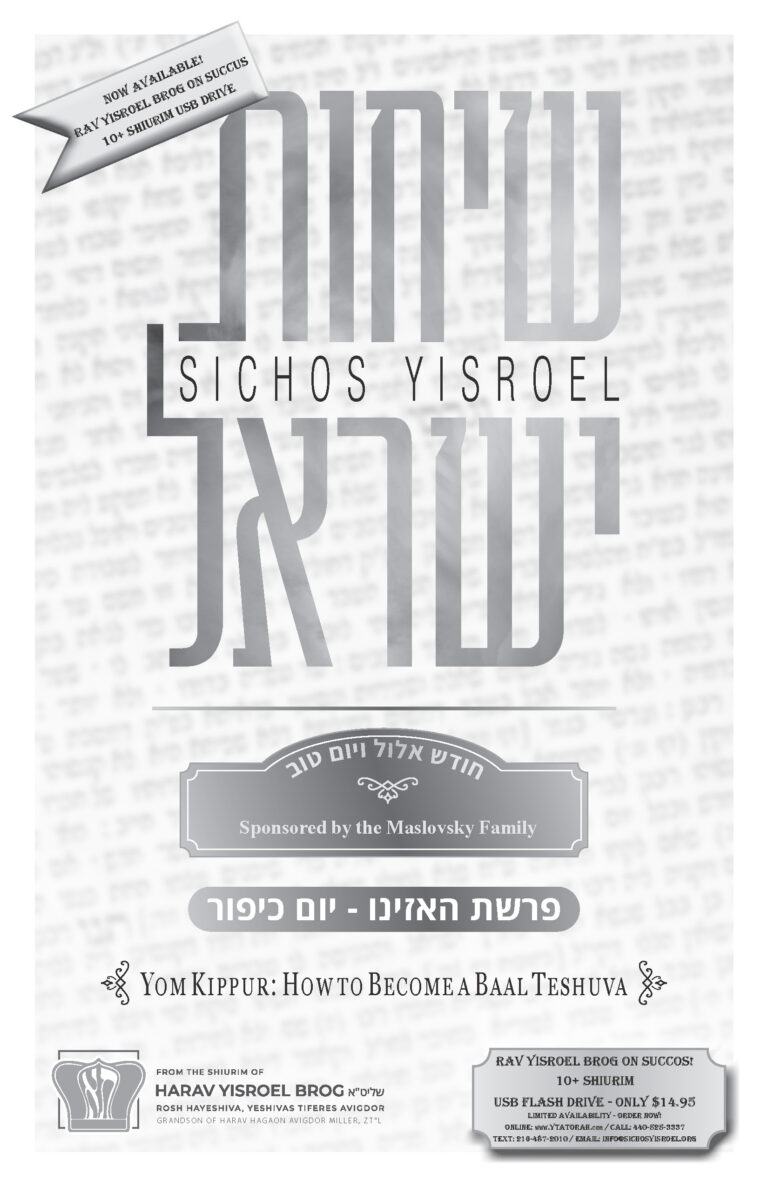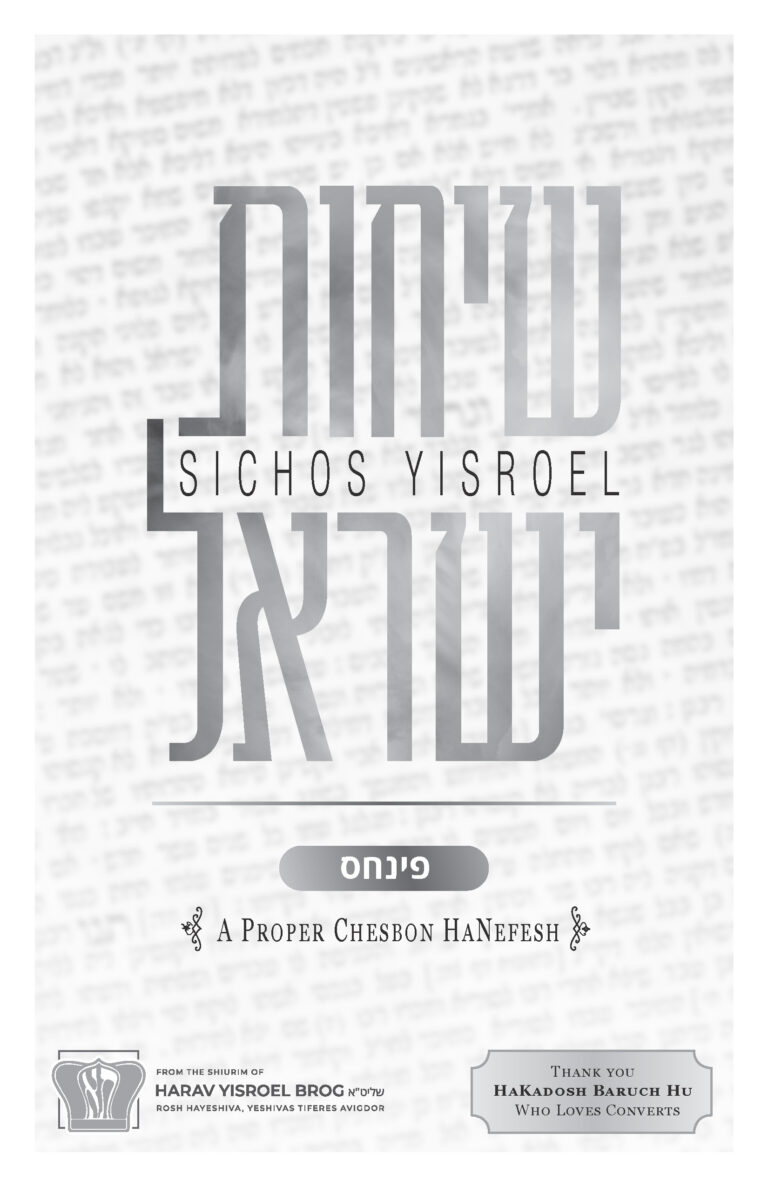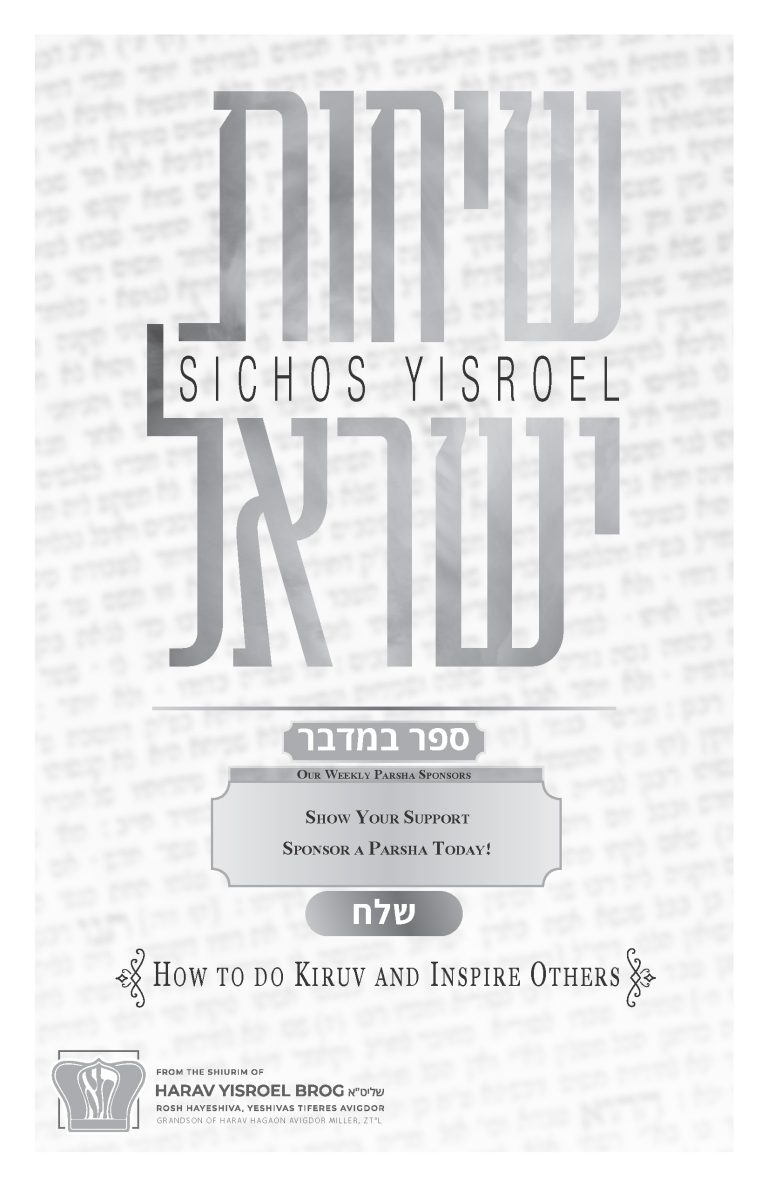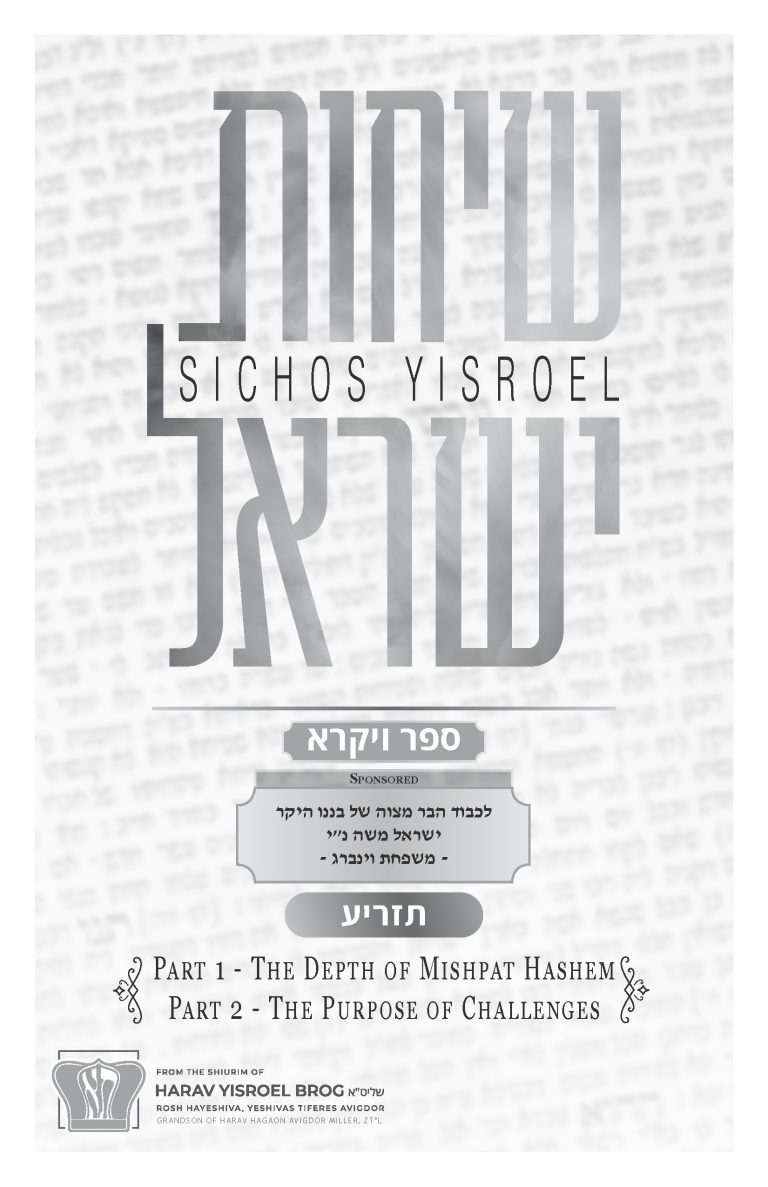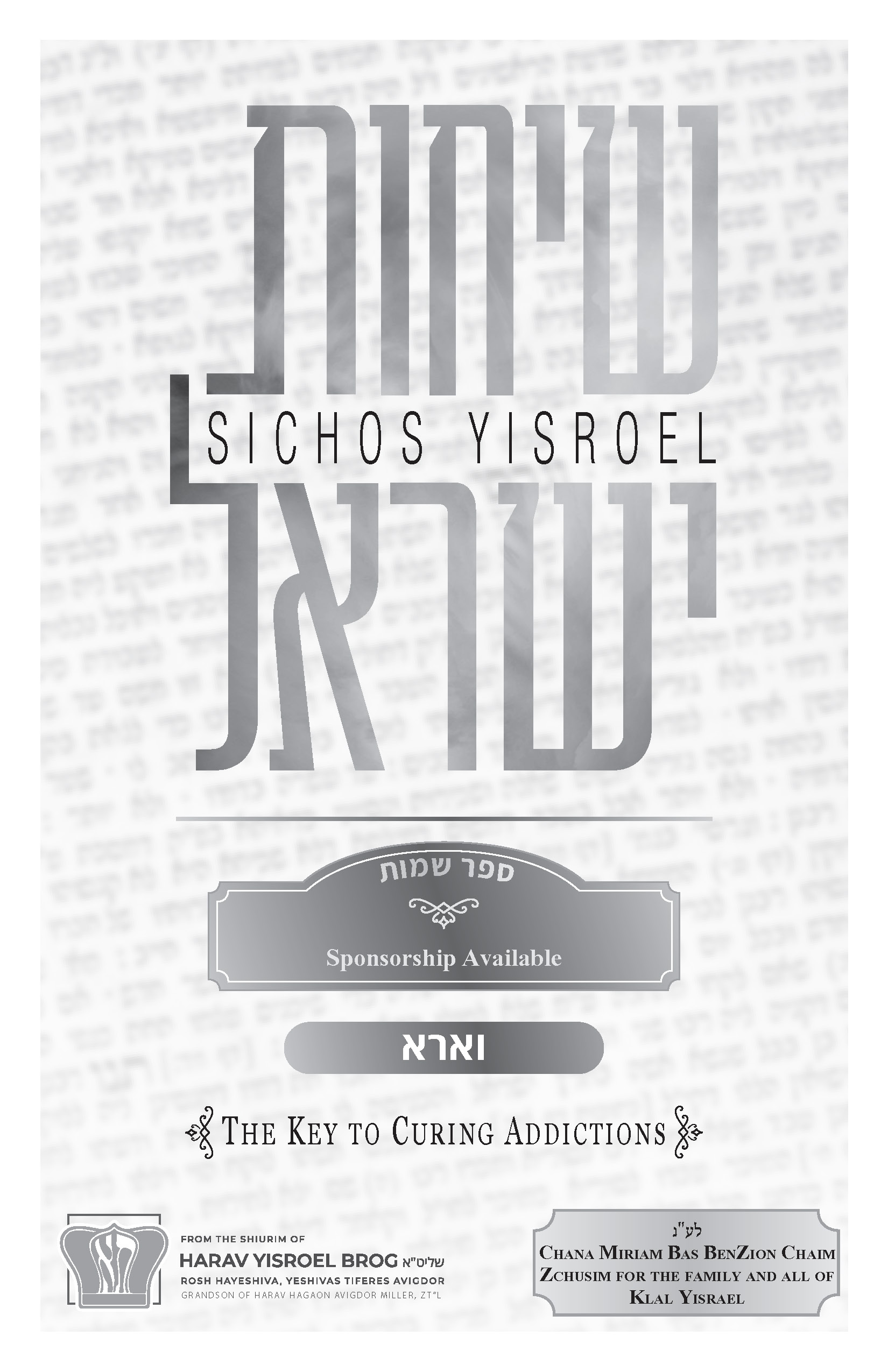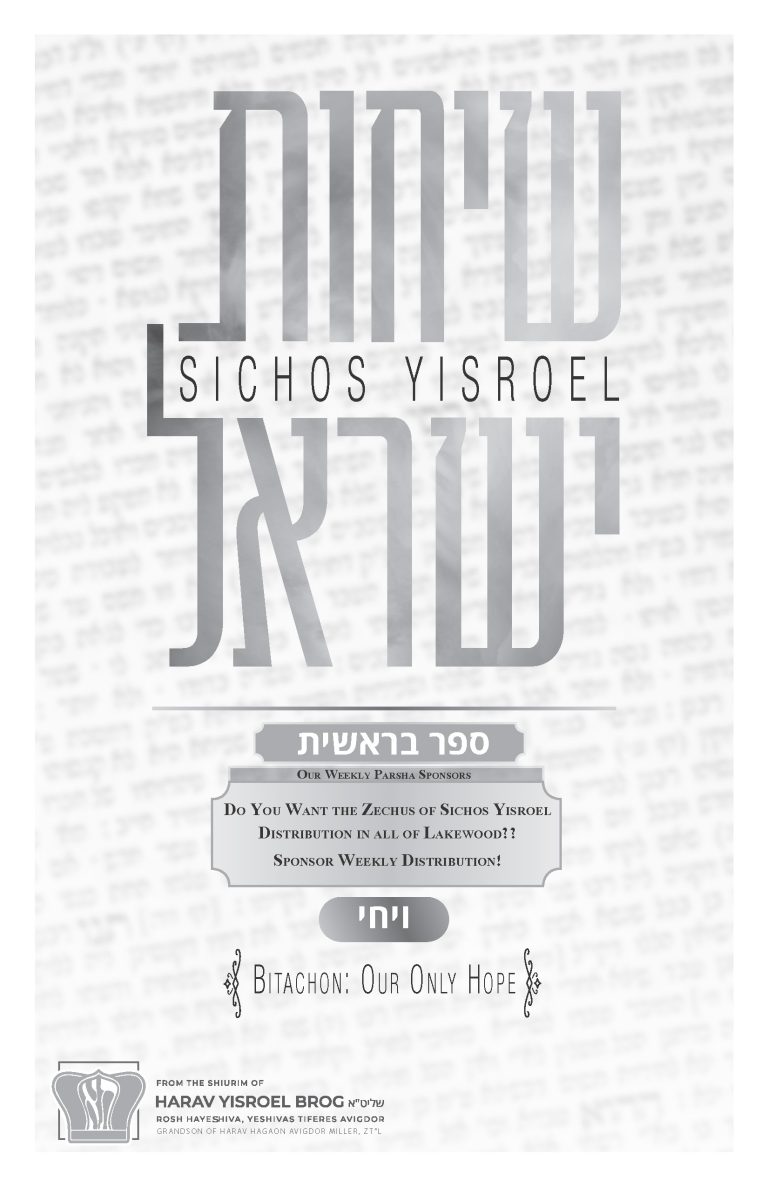Parshas Ki Seitzei: The Power of a Kind Word
Sponsored
We Need Your Help to Ensure the
Future of Sichos Yisroel!
Consider sponsoring a shiur
Visit YTATorah.org
Shiur given in 5783
Part 1: The Power of a Kind Word (5783)
Amon and Moav May Never Be Megayer
In this week’s parshah, it says ‘לא יבוא עמוני ומואבי בקהל ה, that somebody from the nation of Amon or Moav cannot become part of the Jewish nation (Devarim 23:4). It says גם דור עשירי, even after ten generations, ‘לא יבוא להם בקהל ה, they can’t come bekahal Hashem, עד עולם, forever. Why not? על דבר אשר לא קדמו אתכם בלחם ובמים, because of the matter that they didn’t present you with bread and water, בדרך, on the road, בצאתכם ממצרים, when you were leaving Mitzrayim (ibid., v. 5).
Now, this is an amazing thing. Does the fact that somebody didn’t give you lechem and mayim mean that they can’t become part of the Jewish nation? I can think of a lot of other nations that did some very nasty stuff to the Jewish nation, a lot worse than not offering lechem and mayim, and they could come into the Jewish nation. They could be megayer (convert).
And another question: When did they not offer this bread and water to Bnei Yisrael? When they were in the midbar approaching Eretz Yisroel, they had mann that fell down. They had mayim, water, from the Be’ero shel Miriam. They didn’t need any food from the Amonim and the Moavim, so what was the big deal?! If the Yidden were starving, okay, but the Yidden had the best water – the Be’ero shel Miriam. Why was Hashem so upset at Amon and Moav that they didn’t offer this?
One more diyuk in the passuk. In the passuk it says על דבר אשר לא קדמו אתכם. The word על דבר is seemingly superfluous. It could have said על אשר לא קדמו אתכם בלחם ומים, because they did not present you with lechem and mayim. Why does it say על דבר, “over the matter”? It’s a very unique wording.
The Damage Caused by A Lack of Kind Words
So, there is a sefer authored by Rav Yosef Caro (1488-1575). It’s called Derushei Maharika.[i] And over there he says a pshat, which answers all these questions. He says the words, על דבר wants to teach you something. He says a gevaldige chiddush. He says בעבור שלא נתנו להם דברים טובים וניחומים , because the Amonim and the Moavim – who are related to the Jewish people – did not speak good and comforting words to this nation who was wandering in the desert. He says על דבר refers to על דיבור. It’s not because they didn’t give them food and drink. It’s because they didn’t say, “Do you need anything?”
He brings a ra’ayah that davar could mean words. It says in the parshah וזה דבר הרוצח, when a rotzeach (an unintentional murderer) goes to the ir miklat, (the ity of refuge)it says: וזה דבר הרוצח (Devarim 19:4). The gemara (Makkos 12b) says what does davar mean? The rotzeach is supposed to say something to the people if they’re nice to him and they want to respect him. He’s supposed to say, “Don’t be mechabed me. I’m a rotzeach.” In another place in the Torah it says (Devarim 15:2), וזה דבר השמיטה (“this is the matter of the Sabbatical year”). The guy is supposed to say, “I obliterate all the loans” (Gittin 37b). So here also, in our parsha, he writes when it says על דבר it means that Amon and Moav didn’t present Klal Yisrael with any comforting words regarding the needs of Klal Yisrael.
Now, as unique as this pshat is, the emes is the Beis Yosef was mechaven to an open Chazal in the Zohar (על הפ’ וישמע אברהם). Midrash Hain Parshas Lech Lecha. Over there, in Parshas Lech Lecha,it says על דבר אשר לא קדמו אתכם, fregt Chazal וכי ישראל נצרכו ללחם ומים, did Klal Yisrael need lechem and mayim? הלוא היו להם המן והבאר, they had the mann and the be’er, אלא the Zohar says כל המקדים ויצא, anyone who precedes the arrival of and goes out to greet somebody who comes on the road, and he gives him shalom, מעלה עליו הכתוב, the Torah considers it כאילו נתן לו אכילה ושתיה, it is as if you gave him to eat and to drink. והן, and they, the Amonim and the Moavim, שלא באו, who did not come and they didn’t greet them with peace, העלה עליהם הכתוב, the Torah considers it כאילו חסרו מחיתם, as if they took away from their life. As if they needed it, and they didn’t deprive them of it.
This is an unbelievable chiddush. You want to know why the nations of Amon and Moav were detested and rejected? Even the Mitzri’im, a disgusting nation that enslaved us for hundreds of years – if they become Jewish – they can marry into Klal Yisrael after three generations! Even the Amalekim, it’s a shaylah, if they can or they can’t. But Amon and Moav are forever distanced from the Am Hashem. What was the terrible thing that they did? Because when Klal Yisrael was traveling on the road they didn’t extend shalom to them and they didn’t speak words of comfort to them. And for that, goodbye?! Nu?
Think What The Other Person Needs
Now, this is a tremendous lesson for us to learn in our own lives. Do you know why? Because when a person goes to shul, many times he sees somebody, a new face. Obviously, it is a traveler. The person traveled from somewhere else. He’s not your neighbor who started coming to your shul. He’s somebody new. Have you ever had that experience? What do you do when you see a new face in your shul? You lower your head, and you walk by quickly. Maybe take your coffee. You park yourself in the corner there, and you bury yourself. You know what it says here? You’re are expected to offer them words of shalom. You should say shalom aleichem. And if you don’t do this, you’re behaving in a manner that caused two nations to be rejected from the kahal Hashem. You hear that? If a person doesn’t say a good word to somebody, he’s mamash a nebach.
Now, many people say, “It’s not my type. I’m not that kind of person. I have things on my mind. I’m this, I’m that.” I didn’t say you have to hug the guy, but I’m telling you you’ve got to say to the person, “Shalom. Is there anything you need that I can get you?” Many times, my Zeida used to say, “When you invite somebody into your house – after he’s in your house already – you know what the first thing you should tell him? Where the bathroom is. Show him where the washroom is.” You know why? A lot of times, the guy comes from the outside, and he needs a washroom. He’s embarrassed to let you know that he’s human. Or he’s embarrassed because he doesn’t know if you’re one of those finicky people who don’t let people use their bathroom. I know people like that. They don’t let anybody use their bathroom as if it was the kodesh hakodashim and theyare the kohen gadol. My Zeida said the first thing you tell them is where the washroom is.
Eliyahu Hanavi was zocheh to a tremendous level of kochos. He was able to take a meis, somebody who was dead, and be mechayeh that meis. Do you know what kind of koach that is to resurrect somebody from the dead and put him back and make him alive again?! I haven’t seen that in my life. Have you ever seen that? (pointing to someone in the room) No. You’re from Eretz Yisrael, and you traveled a lot. You had a lot of experiences, and still, you didn’t see it. In Wickliffe, I for sure didn’t see it. I’ve been here for decades.
You know what Chazal say? The Yalkut Shimoni asks why was Eliyahu zocheh to be mechayeh a meis? It says because he did the ratzon of Hashem. In what way? He learned? He davened? Yiras shamayim? No. Because he was concerned about the kavod, the honor of Klal Yisrael. And when he saw tzaddikim, he was so impressed that he would hug them. He would kiss them. He would tell them how much he loved them. This is what Chazal tell us. Not because he fasted. Not because of this. Not because of that. But because he was mechabed others. I’ve told you many times, people love to be respected and honored. When people are not given the respect that they feel is due to them, they get bent out of shape. It upsets them very much.
The Man Who Offered Mispallelim Snuff
I’ll tell you an amazing story. A number of years ago, there lived in Eretz Yisrael two great Sefardic gaonim, great rabbis. They were very knowledgeable in the wisdom of Kabbalah. One was named Rav Yaakov Ades (1898-1963). He was the rosh yeshivah of Yeshivat Porat Yosef, a famous Sefardic yeshivah in Yerushalayim. His friend was Rav Yehudah Fetayah (1859-1942) who was also known for dealing with dibukim and spirits that entered people. He wrote a sefer about it. He knew how to get rid of them. These two tzaddikim learned together for many years, and one day, they made a deal with each other. One turned to the other. “Let’s make a deal between us. Whoever is going to die first will come to the other one and is going to tell him what the ma’amad, what the position of lomdei Torah is in the world to come? What’s their sechar? How is their learning mashpia in Shamayim? They both shook hands, tekiyas kaf, and made their agreement.
After a number of years, Rav Fetayah passed on. All the gedolei Yerushalayim, rabanim, went to give him his last kavod and accompany him to his final resting place. Rav Yaakov Ades remembered the promise they made to each other and he was waiting anxiously to see if his friend would come to visit him. At the end of the shivah,Rav Yehudah Fetayah suddenly appears to Rav Yaakov Ades in a dream, and he says, “When I came up to Shamayim they showed me what goes on in the olam ha’emes and what’s the sechar that a person gets for every mitzvah that he does. You should know I can’t reveal to you what the sechar is that you get for limud haTorah because as long as you’re downstairs in that world, you have no possibility to grasp and understand the amazing sechar for lomdei Torah.”
“But one thing,” he said, “I do have reshus to tell you. So listen up,” he said. “Do you remember a certain Yid who was niftar a number of years ago and he used to drey zach in the shuls of Yerushalayim?” He was a shlepper. In Yerushalayim, they have a lot of those. In America you don’t have so many. “Do you remember that Yid? Do you remember what he used to do when he went to the shuls? He used to always pull out snuff tabak.” Snuff. I remember many times in Yerushalayim, even now sometimes when I’m there, I daven in a certain shul and I know one of the main gabba’im who’s there who is a big macher in the chevra kadisha always comes over to me with his special blend of snuff, and he says, “Let me honor you with a little snuff.” I take a pinch with my forefinger and my thumb, I take a deep breath, and usually I give a sneeze and the man smiles from ear to ear. He says to me, “Ze is gut nein, it’s good, no?” “Absolutely the best,” I tell him.
“So you remember that Yid who used to go around from shul to shul and give out the snuff to people?” said Rav Yehuda Fetayah. “I want you to know the guy did it to make people happy, and he wanted them to daven better and to learn better. That’s why he did it. If people would know what kind of sechar that person is getting in that world because he brought joy to others and he caused pleasure to others, they would run around and dish out snuff tabak all day long nonstop.” He said, “Somebody who causes a small simchah, a small joy to somebody, there’s awaiting for him sechar rav, lots of sechar and amazing sechar.”Unbelievable! This is like offering someone simple things – things we take for granted.
People who get involved in their old trivial lives, they just don’t think, “I have an opportunity to make another person happy.” Let me tell you, whenever a stranger comes into a place, he feels out of place. I don’t care who he is. Unless he’s, maybe, the gadol hador. But when a regular person comes, he feels a little bit out of place. And the one thing he loves is to be welcomed. I can’t tell you how many people have come to this beis medrash, and told me afterward they were amazed how many people came over to them and welcomed them and offered them things. “What can I do for you?” Chap arein,Rabosai. That’s what you’ve got to do. If you do that you’ll have sechar rav.
Rav Yosef Caro explains, these two nationals didn’t have a good word to say for Klal Yisroel. A good word. You know what a good word is? I can’t get over that – when I think about how a simple, good word is so valuable.
The Incredible Entrance Exam Into Grodno
There was a Yid who lived in New York, a rav, afamous Yid who learned by Rav Shimon Shkop (1860-1939) in Grodno. He related that his parents were paupers: “They couldn’t send me to the yeshivah by train. It was decided that I should go by foot. Two weeks by foot to get to the yeshivah. A young bachur. Nu, they gave me what I would need, they packed me up with food. They told me, ‘When you run out of food, and you will run out of food, ask help from Yidden that you meet on the road.’ I was a young bachur and I went on the road and people helped me out. I slept every night in another shul. Sometimes, I didn’t find a shul. I slept on the ground in some private corner. I had a lot of frightening moments during those two weeks. Many times, I thought I was totally lost. I didn’t know if I was going to have food the next day. I was most concerned that I would come to Grodno, to the yeshivah and I wouldn’t be matzliach in my test, my entrance exam into the yeshivah,and I would have to go the whole way back because they would send me away. Nu. And it would cause tremendous disappointment to my parents. So the whole road, the whole way I was traveling, I was chazering over the gemara that I was to be tested on until I knew it ‘cold.’ And this is how I arrived in Grodno, weary and tired.
I went into the room of the Rosh Yeshivah, Rav Shimon Shkop. He was mekabel me with a tremendous endearment and sweetness. He asked me my name. He asked me what city I come from. Then he said to me, ‘I’m going to ask you two questions. I have two questions to ask you, that’s the entrance exam. First question is, when’s the last time you ate a warm meal, a hot meal?’ I was shocked. I was preparing my mind for the gemara that I was getting tested on and he asked me when’s the last time I ate a hot meal. I thought for a minute, and I said, ‘Three weeks ago. It’s been three weeks since I ate a warm meal.’ Immediately, Rav Shimon, the great Rav Shimon Shkop, the Rosh Yeshivah, jumped out of his chair. He was already 70 years old plus. He said, ‘I’m not a baki in knowing how to cook like my wife. My rebbetzin is not home now. But I know mashehu, I know something.’ Immediately, he began to cook me a hot meal. He gave me some warm food that warmed me up. When he finished cooking, he put it on a plate, and put it in front of me.
After I finished eating, Rav Shimon said, ‘Now I’m going to ask you the second shaylah.’ After I had eaten, and I had a nice kabalas panim, I was much more calm, and now I felt ready to get tested. But the second shaylah that he asked him was even more surprising. He said, ‘When’s the last time you slept in a bed?’ I was thinking and thinking. I said, ‘To tell you the truth, I don’t remember. I can’t remember the last time I slept in a bed.’ Immediately, Rav Shimon went to the bedroom and he made a bed for me and he told me, ‘Come with me. Go to sleep.’ He covered me with the blanket personally. He, himself, personally covered me with the blanket! I was so tired, I was out cold, and I slept straight until the next morning. The next day, in the morning, you know what I found out? He had given me his own bed. That was my test to get into Grodno Yeshiva.”
This elderly rav from New York said: “I went through the Holocaust. I lost all my family. I went through such tzaros, such suffering, such torture, physical suffering, emotional suffering. You know what kept me alive all those years? The two questions that Rav Shimon Shkop asked me during my test to get into Grodno. When did you eat the last warm meal, and when did you sleep in a bed the last time.” You hear that?
Be A Yid Whom The World Needs – Smile!
My Zeida used to say, “You want to prepare for Rosh Hashanah? I’m going to tell you what you should do. Smile! Smile to Yidden. Show them a smile and make them feel good. And if you do that, you will be zocheh.” You can’t imagine what you’re doing by smiling at others. But do it because you want to make others happy. Do it because you want others to feel good. You want to be mehaneh others. And if you do that, you should know your sechar in olam haba is tremendous, and you shouldn’t stop doing it all day long. Come out of your hibernation. Come out of your cocoon. You have a beautiful smile, but you have to use it. Use that smile! Be mehaneh others, and if you’ll do that, you’ll come to the Yom Hadin and Hashem will say to you, “Ah, this Yid brings pleasure to others. Of course, I’m going to give him another year. Of course! The world needs Yidden like that.” Let us be matzliach, and let us be zocheh to the kindness of Hashem.
The Bottom Line
The descendants of Amon and Moav may never enter the kahal Hashem. This is apparently because they did not offer bread and water to the Yidden when we came out of Mitzrayim. However, the extra word – davar – in the passuk indicates that Amon and Moav did not offer a kind word. The lack of care and concern to the fledgling nation that was wandering in the desert was tantamount to causing a deficiency in their sustenance. For this, they are forever excluded from Am Yisrael. We learn from this the great importance of a kind word. Examples of this are: Welcoming a new person in the kehillah,while thinking more about their needs than your initial discomfort, bringing joy to another person, making sure the basic needs of another person are being taken care of honorably, and smiling at others, especially when many people are stressed and serious-looking. This week (bli neder), I will find opportunities for sharing a kind word with another person, such as by initiating a chessed to a newcomer, smiling at other people, and doing acts that bring joy into people’s avodas Hashem.
[i] וז”ל: על דבר אשר לא קדמו וגו’ לא תדרוש שלומם. יש לומר למה צווה השי”ת שנתעב אותם כל כך בעבור שלא נתנו לישראל לחם ומים דבר מועט כזה ועוד כי לא היו צריכים אותו שכבר היה להם מן, דיש לומר שאמר על דבר, רצונו לומר בעבור שלא נתנו להם דברים טובים וניחומים, וזה שאמר על דבר: בשביל הדבור וגם כן תמצא שאמר הכתוב וזה דבר הרוצח כמו ששנינו שיאמר רוצה אני אל תכבדוני [מכות י”ב,ב], וגם כן וזה דבר השמיטה ר”ל שידבר ויאמר משמט אני, ואם אמר לו אע”פ כן יקח ממנו [שביעית פר’ י’ משנה ח’], עכ”ל.
